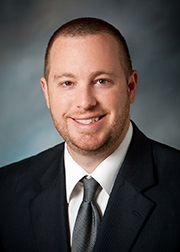For the last few months, the dominant story in the financial media was predicting when the Federal Reserve would raise its target interest rates. On December 16th, it finally happened and the Fed announced a ¼% increase. Over the last several years, an increase in rates has largely been presented as some evil specter to fear. We published several pieces about the effects of higher rates and why rate increases need not be feared if you are prudent. One theme running through all these missives was if one’s financial plan is dependent on having an accurate prediction of changes in interest rates or any other aspect of the financial markets, the plan may fail.
We do not “play the market,” try to time the market or otherwise gamble with our client’s money. Our approach is backed by decades of empirical evidence.
We do not “play the market,” try to time the market or otherwise gamble with our client’s money. Our approach is backed by decades of empirical evidence. Most who try to out maneuver the markets fail and over time fewer and fewer outperform by less and less.
Returns chasing can be a costly tactic
The market timing move we warn about most often is wanting to get out of an investment because of fear it will decline in value soon. But there is another form of timing that stems from the opposite motivation called “returns chasing.” This is abandoning less profitable holdings in favor of what has been making the most advances of late – chasing the returns of what’s hot. A tip off this is happening is the question, “Why stay in one fund when another is performing better?”
The answer is straightforward: diversification is less risky and usually provides steadier returns with smaller tax bills. Returns chasing is placing a bet that what has been doing well will continue to do well and what has been weak will stay weak. A cursory review of market history reveals neither is true for very long. What is hot turns cold, what is cold turns hot, and there are numerous periods (sometimes lengthy) in which results are tepid.
Returns chasing harms performance results because it puts the portfolio in a position where it is constantly trying to make up lost ground. The “winner” you buy with the funds you received from selling the “loser” has to continue to win by enough to overcome the deficit. If that doesn’t happen, the “winner” you just bought starts to look like a “loser” and the temptation to move elsewhere builds. The more you move your money around like this, the deeper the hole that is dug.

We have warned against this practice several times in the past. Not all bonds are created equal. These high yield bonds paid more interest because they were riskier. We did not know when these bonds would produce awful results, we just knew the possibility of an awful result existed and believed the potential payoff did not justify the risks.
In October, we noted how poorly junk bonds had done during the stock market’s recent decline. Stocks recovered but these bonds fared worse. In fact, one of the country’s top high yield bond funds imploded and shareholders were not permitted to get out of the fund. Many high yield bond indexes are down to levels not seen since 2009.
Financial markets around the world were not particularly productive in 2015. The Dow Jones Industrial Average lost 400 points on the year. Indexes that track the stock of small U.S. companies, large foreign companies, and emerging market companies generally fell between 4% and 17%. Short term high quality bonds, real estate investment trusts and small foreign companies were modestly profitable. Returns in client portfolios are what we would expect given what has happened in financial markets. We saw in 2015 what is referred to as a narrow market, where only a small number of stocks in the U.S. showed positive returns. This is the type of market behavior which can lead to returns chasing. It tempts you to ask, “Why should I own small/value/foreign stocks when what little money was to be made was made elsewhere?” Don’t fall for it.
People who chased the returns of high yield bonds likely felt they were only acting sensibly. They may have thought, “Why put up with earning very little interest when these other bonds are paying more?” They may have thought this reasonable but in essence, they lost sight of their goals and focused on the short term. It was speculating in a less obvious form. They lost patience and lost discipline. Losing that can lead to a lack of diversification, which means more risk. And when risk turns its ugly head against you, ouch!
Staying diversified, exercising discipline, and being patient is the most reliable way we have seen to improve the odds of meeting a family’s financial goals. Invest, don’t speculate.
Recommended additional readings:
Don’t fear a rate increase by the Fed
Investments to avoid when interest rates rise
Why diversification among asset classes is so important
Why investing globally is important
Why holding many securities is better than holding just a few
Scams: Be smart, not fearful.
We have noticed an increase in the number of telephone and email scams recently. Many of us have received ominous phone messages from people saying they are with the IRS, Social Security Administration, other government agencies, or law enforcement officers and demanding we return the call. Sometimes the story is given that a family member has been arrested or is otherwise in trouble. These calls and similar emails can sound very serious but they are not legitimate. Typically, they ask for a fee to fix the alleged problem or try to get you to reveal information which can be sold to or used by criminals such as Social Security, bank account, or credit card numbers.
No government official or financial institution will ever call you to verify your social security number, banking information, or credit card number.
No government official or financial institution will ever call you to verify your social security number, banking information, or credit card number. If you receive a notice that appears to be from your bank or credit card company, do not call the number or click the link in the email no matter how legitimate it may look. Instead, look up the number from a third party source for the agency, bank, or card company (see back of card) and call that number.
We’ve talked about cybersecurity and identity theft a number of times and will continue to do so in the future, as it is today’s reality. No one can guarantee the prevention of a theft but there are steps which can be taken to make it harder for the bad guys. Be diligent and protective of your information. Use strong passwords and change them regularly. Try a password manager to help keep track of these. Encrypt your devices and use secure connections. Many experts speak highly of cellular data networks and would avoid the use of any public Wi-Fi. Use two-factor authentication when possible. Two-factor authentication (TFA) requires two pieces of identifying information, a password and something else, often a security question or code sent to the email or cell phone on file. Your client portal has TFA available.
Another thing which can be done is freeze your credit. This will make it very difficult for anyone but you to apply for credit in your name. If a freeze is placed on your credit report with the three credit bureaus, it should not be possible to establish new credit accounts. When you truly need a loan or a new credit card you can lift the freeze, get your credit, and then put the freeze back on. Freezes do NOT affect your credit rating or any of your existing credit relationships. Fees vary by state and credit bureau but in Florida, the bureaus charge a mere $10 to freeze or unfreeze. For more information, go to the websites of Equifax, Experian, and Transunion.
If your credit report is accessed frequently, a freeze may be impracticable but for most people, applying for new credit is an infrequent event. Therein lies a dilemma regarding security: many steps we should take are inconvenient. The criminals are hoping the inconvenience will leave you vulnerable.
Finder.com conducted a poll of nearly 2,000 people in the U.S. and asked them to identify their biggest money mistakes. Our own Mike Salmon was tapped by CNBC for commentary on the mistake of getting scammed. Mike implored people to get someone to “take a look at what’s being presented before you take the bait.” That’s sound advice. Before you buy anything new from or pay a fee to any unsolicited caller, get a third party opinion.
News & Notes
Congratulations, Dave: We are happy to announce our Portfolio Administrator, David Baker, has earned the Accredited Portfolio Management Advisor designation. Dave’s course work encompassed client assessment and suitability, risk/return, investment objectives, bond and equity portfolios, modern portfolio theory, and investor psychology. The exam tested his ability to synthesize complex concepts and apply theoretical concepts to real-life situations. He is subject to Standards of Professional Conduct, a disciplinary process, and continuing education requirements to keep the designation.
Thank you, Congress: How often do people say that? Congress surprised many in December when they not only extended a few tax provisions, they made the extensions permanent. This put an end to what had become a biannual ritual of wondering whether certain provisions would continue. Two provisions that affect our clients which are now permanent are the deduction for sales tax and the Qualified Charitable Distribution from IRAs. Any Floridian who itemizes will benefit from the former and any taxpayer age 70 ½ or older can benefit from the latter.
New numbers and tax issues for 2016: The IRS announced the official numbers for a slew of new thresholds and limits which vary every year based on inflation adjustment provisions. With inflation low, changes were minimal or non-existent. For instance, the maximum contribution to an IRA remains $5,500 ($6,500 if age 50 or older) and the maximum employee contribution to a 401(k) stays at $18,000 ($24,000 if over age 50). For a more extensive list see: https://www.irs.gov/uac/Newsroom/IRS-Announces-2016-Pension-Plan-Limitations%3B-401(k)-Contribution-Limit-Remains-Unchanged-at-$18,000-for-2016
2016 tax brackets were also announced. See the following chart from the Tax Foundation: http://taxfoundation.org/article/2016-tax-brackets
Please remember to call us: When anything significant happens in your life, including changes in your finances, family, or health that could affect your financial plan, please let us know so that we can adapt our planning and portfolio work for you accordingly. Also, if you ever fail to receive a monthly statement for one of the Schwab Institutional or TD Ameritrade Institutional accounts under our management, please let us know so we may assure the respective custodian delivers your statements promptly.
Yours truly,
The Team at Moisand Fitzgerald Tamayo, LLC


